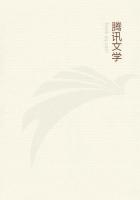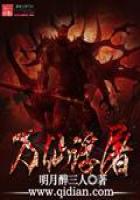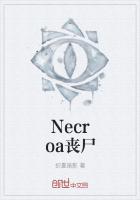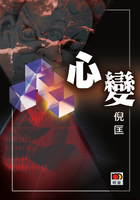Mr. Clapp wished to speak again, but Mr. Reed took the case entirely in his own hands; he was evidently firmly convinced of the identity of his client with William Stanley, and the natural indignation he felt at the accusations of the defendants, and the treatment the sailor had received from the executors, gave unusual warmth to his manner, which was generally calm; it was remarked that he had never made a stronger speech than on that occasion. He did not dispute the honesty of the opinions of Mr. Wyllys and Hazlehurst, but he conceived they had no right to hold such opinions after examining the testimony in behalf of the plaintiff. He conceived that the defendant attached an importance altogether puerile to mere common probability, every-day probability; how many facts, now proved as clearly as human evidence can prove, have worn at first an improbable aspect to many minds! How many legal cases of an improbable nature might be cited! He would only allude to a few; and here he went over several remarkable cases on record.
"And yet he would even engage to answer the objections against his client on this very ground of probability; much had been said about the volume of the Spectator, but Mr. Hazlehurst could not swear to having read it at Greatwood four years since; while it appeared on cross-examination that his brother had the same edition of that book in Philadelphia, and that Mr. H. was in the habit of reading his brother's books; it also appeared that other volumes had been lost from the house at Greatwood in the course of the last four years. He held it then to be clearly probable; first, that Mr. H. had not read that identical volume shown at the interview, but one belonging to his brother; secondly, that the same volume had not been lost within the last four years; that others had been lost was certain, but that this volume had been in the possession of his client for nearly twenty years was PROBABLE." He went on in the same way to prove the probability of his client's gait having been changed, like that of other sailors, by a life at sea; that his whole body had become heavier and coarser from twenty years' hard work, and change of habits.
He here made Dr. B., the physician who had testified on this subject, appear in a ridiculous light, by quoting some unfortunately obscure remarks he had made under cross-examination.
"Then, as to his client's temper, he hoped it had improved with age, but he thought that point had not been as clearly settled as his best friends could wish; still, it was by no means IMPROBABLE that it had improved under the salutary restraints of greater intercourse with the world. Who has not known persons whose tempers have become better under such circumstances? As to the capacity of his client, that had also PROBABLY been roused into greater activity by the same circumstances. Who has not heard of striking instances in which boys have been pronounced stupid by their masters and playfellows, and yet the same lads have afterwards turned out even brilliant geniuses?" He mentioned several instances of this kind. He went over the most striking features of the whole case in this manner, but we are necessarily compelled to abridge his remarks. "He accepted this ground of probability fully and entirely; the conduct of his client had been thought unnatural; he conceived that the very same stubborn, morose disposition, which the defendants had laboured so hard to fasten upon William Stanley, would account in the most PROBABLE manner for all that had been unusual in the conduct of his client. The same boy who at fifteen had so recklessly exchanged a pleasant home and brilliant prospects for a sailor's hardships, might very naturally have continued to feel and to act as the plaintiff had done."
He then brought together all the points in favour of the sailor, "The resemblance between the plaintiff and William Stanley had been called trifling by the counsel for the defendants; he considered it a remarkably strong resemblance, since it included not only acknowledged personal likeness, but also similarity of handwriting, of age, of occupation, the possession of documents admitted to be authentic by the defendants themselves, with knowledge of past events, persons, and places, such as would be natural in William Stanley but quite beyond the reach of a common stranger. He conceived that the great number of different points in his client's favour was a far stronger ground for the truth of his claim, than any one fact, however striking, standing alone.
He held that this mass of evidence, both positive and circumstantial, could be accounted for in no other way at all probable, than by admitting the identity of his client. He conceived it also probable that any unprejudiced man would take the same view of this case; a case singular in its first aspect, though not more singular than hundreds of others on record, and entirely within the bounds of possibility in every fact, while it assumed greater probability the farther it was examined." He then adverted to several points merely legal, and finally concluded by a strong appeal in behalf of the plaintiff.
The judge rose to make his charge; it was strictly legal and impartial, chiefly reminding the jury that they were to decide entirely from the facts which had been placed before them; if they thought the evidence to which they listened sufficient to prove legally the identity of the plaintiff as William Stanley, they must give a verdict in his favour; if they held that evidence to be incomplete and insufficient, according to the legal views which must be their guide, they must pronounce a verdict in favour of the defendants: concluding with explaining one or two legal points, and an injunction to weigh the whole evidence impartially, the judge took his seat.
The jury rose; marshalled by constables and headed by their foreman, they turned from the box and left the court-room to consider their verdict.
Another cause was called. The parties interested, their friends, and the crowd of curious spectators poured from the building, discussing as they moved along the probable result, which could scarcely be known until the next morning, for it was late on the fourth night that the trial closed.

